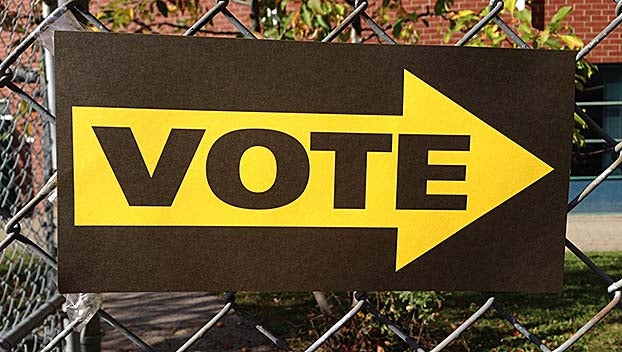Two plead not guilty to charge of hosting raffle to encourage voting in Mississippi elections
Published 12:30 pm Monday, October 18, 2021
A city council member and a local Democratic leader in Mississippi have pleaded not guilty to a charge accusing them of violating a state law against raffles to encourage voting.
Tupelo City Council Member Nettie Davis and Charles Penson, chairman of the Democratic municipal executive committee, entered the pleas Friday to a misdemeanor indictment alleging they broke a law against raffling anything of value to encourage or discourage voting, the Northeast Mississippi Daily Journal reported.
Davis asked people at a municipal elections rally to donate money for cash prizes for people who voted and Penson posted on social media that ministers spoke of financial incentives to vote — but no raffle was ever held, according to the newspaper.
“Quite frankly, I was surprised to hear about this law that supposedly we have violated,” Penson said Friday. “It’s an obscure law. Nobody knew anything about it until it came out in the newspaper. Immediately, when we found that there was such a law and we could conceivably be in violation of it, we shut our operation down.”
Lee County Circuit Court Judge John White released them without bond at their arraignment Friday. A $5,000 fine is the maximum penalty on the charge, though Davis could be removed from office if convicted.
District Attorney John Weddle said he believes the indictment is “self-explanatory.”
Asked if his prosecution of two longtime leaders in the Black community and the Democratic Party is political, as some have alleged, Weddle said that accusation is not worth commenting on.
Attorney Jim Waide has asked separately for the law to be declared unconstitutional. His request, originally filed in state civil district court, is pending in federal court.
“My original intent … was to get a ruling by a state court on the unconstitutionality of the statute without there ever being a criminal proceeding,” Waide said. “Unfortunately, that didn’t work out because the district attorney proceeded with the separate case.”






